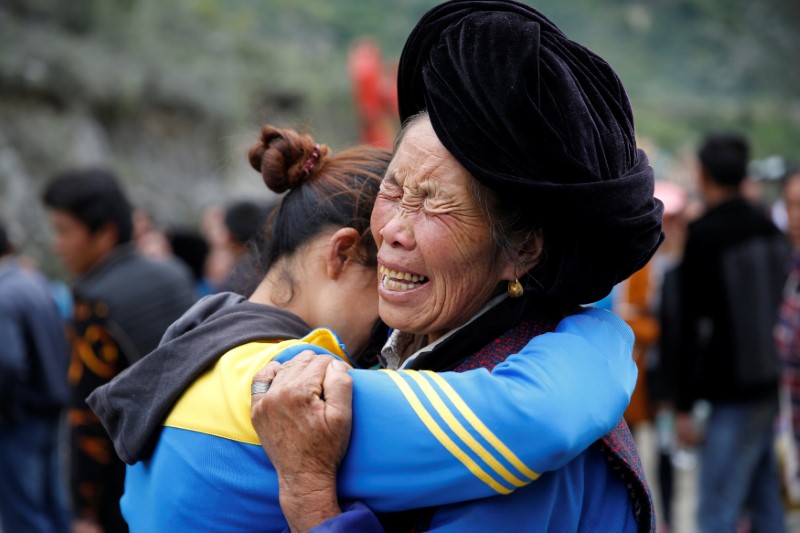
BEIJING (Reuters) – China urged the United States to revoke immediately its “wrong decision” to sell Taiwan $1.42 billion worth of arms, saying it contradicted a “consensus” President Xi Jinping reached with his counterpart, Donald Trump, in talks in April in Florida.
The sales would send a very wrong message to “Taiwan independence” forces, China’s embassy in Washington said in a statement. A U.S. State Department spokeswoman said on Thursday the administration had told Congress of seven proposed sales to Taiwan, the first under the Trump administration..
“The Chinese government and Chinese people have every right to be outraged,” the embassy said.
China regards self-ruled Taiwan as a wayward province and has never renounced the use of force to bring it under its control. China’s Nationalists fled to the island after losing the civil war with China’s Communists in 1949.
The United States is the sole arms supplier to Taiwan.
“The wrong move of the U.S. side runs counter to the consensus reached by the two presidents in and the positive development momentum of the China-U.S. relationship,” the embassy said.
China’s Defense Ministry said Taiwan was the “most important, most sensitive core issue in Sino-U.S. ties”, warning the United States to end such sales to avoid further damaging peace and stability in the Taiwan Strait.
Trump was critical of China during his successful 2016 presidential campaign but his meeting at his Mar-a-Lago resort in Florida with Xi raised hopes for warmer relations.
Trump later played up his personal relationship with Xi, calling him a “good man”, and stressed the need for China’s help in reining in a defiant North Korea’s development of nuclear weapons and missiles.
China’s anger over the U.S. plan to supply Taiwan with weapons risks undermining Trump’s attempts to press China to help on North Korea.
The proposed U.S. package for Taiwan includes technical support for early warning radar, high speed anti-radiation missiles, torpedoes and missile components.
Beijing’s relationship with Taiwan has been frosty since President Tsai Ing-wen took power in Taipei last year. Tsai leads an independence-leaning party that refuses to recognized Beijing’s “one China” policy.
Tsai’s office said on Friday the planned sales increased Taiwan’s confidence and ability to maintain peace and stability across the Taiwan Strait.
Asked about the sales at an event on Thursday evening in Washington, Chinese Ambassador Cui Tiankai said the United States was “incorrigible” when it came to Taiwan, the official Chinese Communist Party People’s Daily newspaper reported on its website.
“But we should still continue to instruct (them) and continue advancing on the right track of China-U.S. relations because this is what truly fits for both countries’ long term interests,” the paper quoted Cui as saying.
The sales, which require congressional approval, would be the first since a $1.83 billion sale that former President Barack Obama announced in December 2015, also to China’s dismay.
The previous package included two navy frigates in addition to anti-tank missiles and amphibious attack vehicles.
(Reporting by Christian Shepherd and Ben Blanchard; Editing by Paul Tait and Nick Macfie)












